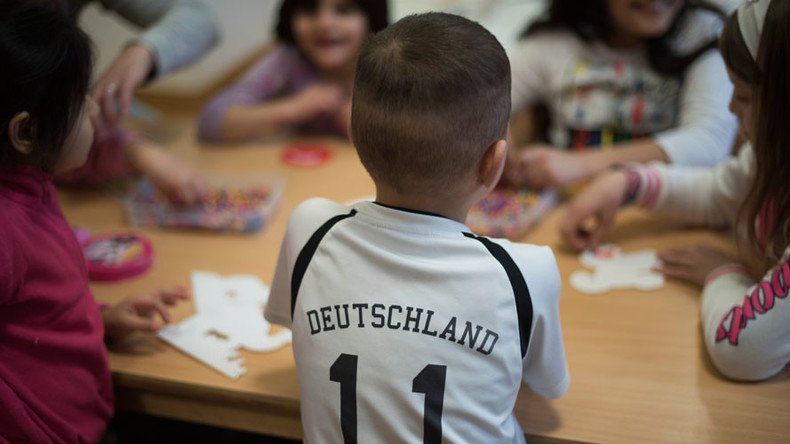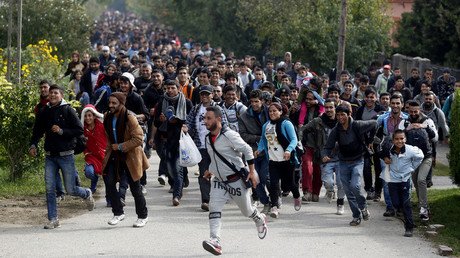Germany’s fertility rate hits 33-year high due to migrant influx

The EU’s most populous country has reversed demographic trends going back decades, with statistics showing that the rise in fertility is almost exclusively down to immigrant women, while the lifetime birthrates among the German population remain static.
On Monday, the German Federal Statistical Office released its official report, stating that German women currently aged between 15 and 49 have given birth to an average of 1.5 live babies during their lifetimes, up from 1.43 last year.
The numbers have been rising since 2012, and the latest lifetime fertility rate is the highest since 1982.
While the fertility rates for German citizens have stayed almost the same as last year – with 1.43 lifetime births versus 1.42, those of foreign citizens who gave birth in Germany climbed, and now differ even more starkly with those of the native population. Foreign women living in Germany gave birth to 1.95 babies, up from 1.86 last year. A replacement lifetime fertility rate, which would allow the population to be kept stable without immigration, is 2.1.
The figures can be largely explained by the spike in immigrant arrivals over the past half-decade.
But the trend is set to grow yet further, as more of the 900,000 people who applied for asylum last year settle, and begin to give birth in Germany. More than two-thirds of those arriving are Muslims, and most come from states with significantly higher fertility rates. The lifetime fertility rate in Syria, the leading origin county, was over three before the war began five years ago, while that of Iraq is over four, and Afghanistan over five.
These birthrates are unlikely to be replicated precisely in the new country, and it is also notable that a significant majority of asylum seekers arriving in the country are male, meaning some will have to enter inter-cultural relationships if they are to multiply at all. Nonetheless, as previous statistics show, immigrants, and particularly Muslims, tend to have larger families, even decades after arriving in a European country.
In another finding, while the average age of German citizens at time of childbirth has risen – to over 31 – that of immigrant mothers has fallen to about 30.
Before the latest uptick, Germany, with a population that stands at 81 million, had been locked in a long-term demographic crisis.
It was exacerbated by the rapid fall in the number of births in East Germany following reunification, similar to that experienced in other post-Communist states, but even now, Germany lags behind. Its birthrate – the number of children born per 1,000 women each year, not over a lifetime – has fallen to become the lowest in the world. Over the past five years an average of 8.2 babies were born to 1,000 women each year, compared to 8.4 in Japan. This is explained not just by Germans electing to get married later and to have fewer babies, but also an ageing population, combined with a dearth of child-bearing millennials.
While Germany’s leadership is encouraged by the higher fertility rates, which will eventually add more productive workers to the economy, opposition parties, such as the anti-immigrant AfD, which has been gaining momentum, have explicitly warned that the higher Muslim birthrates will eventually transform the demographic make-up of the country irreversibly.















